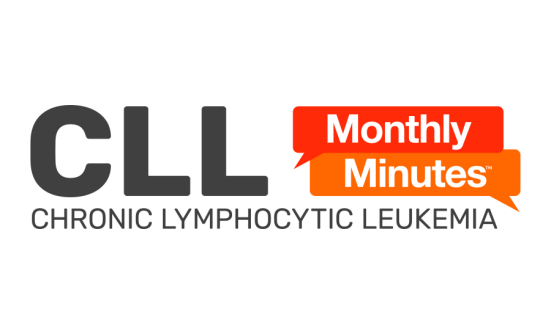Medicine is always changing, especially in heavily researched fields like oncology. It has been estimated that >1 million biomedical papers are published each year, or about 2 papers every minute.1 The sheer quantity of these publications can make it difficult for physicians to keep up with the latest advances and therapies that could help their patients.
Clinical practice guidelines are one way that busy physicians can ensure that they are staying current on how they deliver care. One important set of guidelines comes from the National Comprehensive Cancer Network (NCCN). NCCN is a not-for-profit alliance of 28 leading cancer centers, whose experts have written a set of treatment guidelines for doctors who treat a variety of cancers, including chronic lymphocytic leukemia (CLL).2
New updates of the NCCN guidelines are published several times a year as experts assess and incorporate new data. Since a December 3, 2020, update, the expert panel on CLL has recommended the Bruton tyrosine kinase (BTK) inhibitor zanubrutinib as first-line and second-line therapy for certain patients with CLL and small lymphocytic lymphoma.3,4 However, it should be noted that the US Food and Drug Administration has yet to approve zanubrutinib for use in CLL.5
As a BTK inhibitor, zanubrutinib is in the same class of medications as ibrutinib and acalabrutinib. These targeted therapies have become a preferred treatment regimen for many patients with CLL since the first BTK inhibitor, ibrutinib, was approved in 2014. Compared with ibrutinib, the newer compounds, acalabrutinib and zanubrutinib, are more specific in what they target–the protein BTK–and therefore have the potential to cause fewer side effects.6
Although not yet approved in CLL, clinical trials have shown that zanubrutinib can be a well-tolerated and effective treatment for this cancer. The phase 3 SEQUOIA trial tested zanubrutinib in 109 patients with previously untreated CLL and a specific mutation in which the cancer cells have deleted the short arm of chromosome 17, medically known as del(17p).4 About 95% of these patients showed a response to the treatment, and low rates of treatment-related side effects, including abnormal heart rhythm (atrial fibrillation), bleeding, or high blood pressure, were seen.4
Zanubrutinib has also demonstrated activity in patients with relapsed or refractory CLL in preliminary clinical trials.4 In a phase 1 study that included 56 patients with relapsed or refractory CLL, about 95% of those who received zanubrutinib showed a response to the treatment.4 As seen in previously untreated patients, a low rate of side effects including atrial fibrillation and major bleeding were seen.4
Notably, in both of these studies, patients were allowed to continue other medications they were taking such as blood thinners and stomach acid–reducing agents, which are not recommended for patients taking ibrutinib or acalabrutinib.4 Therefore, taking all of this data into consideration, the NCCN guidelines have recommended zanubrutinib for patients who should not take other BTK inhibitors as either a first-line treatment for patients with del(17p) CLL or as a second-line treatment for patients with or without a del(17p) mutation.4
References
- Landhuis E. Scientific literature: Information overload. Nature. 2016;535:457-458.
- National Comprehensive Cancer Network (NCCN). NCCN guidelines for patients: chronic lymphocytic leukemia. 2019. www.nccn.org/patients/guidelines/content/PDF/cll-patient.pdf. Accessed March 18, 2021.
- Khan S. NCCN recommendation of zanubrutinib as first-line and second-line therapy in chronic lymphocytic leukemia/small lymphocytic lymphoma. Lymphoma Hub. Published January 12, 2021. https://lymphomahub.com/medical-information/nccn-recommendation-of-zanubrutinib-as-first-line-and-second-line-therapy-in-chronic-lymphocytic-leukemiasmall-lymphocytic-lymphoma. Accessed March 18, 2021.
- National Comprehensive Cancer Network (NCCN). NCCN clinical practice guidelines in oncology: chronic lymphocytic leukemia/small lymphocytic lymphoma. Version 3.2021. March 11, 2021. www.nccn.org/professionals/physician_gls/pdf/cll.pdf. Accessed March 15, 2021.
- Brukinsa (zanubrutinib) Prescribing Information. November 2019. www.accessdata.fda.gov/drugsatfda_docs/label/2019/213217s000lbl.pdf. Accessed March 18, 2021.
- Wen T, Wang J, Shi Y, et al. Inhibitors targeting Bruton’s tyrosine kinase in cancers: drug development advances. Leukemia. 2021;35:312-332.















